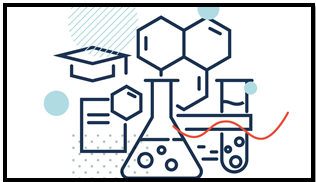THE PROBLEM WITH INDIA’S SCIENCE MANAGEMENT
Relevance:
GS 3
- Science and Technology- developments and their applications and effects in everyday life.
- Achievements of Indians in science & technology; indigenization of technology and developing new technology.
- Awareness in the fields of IT, Space, Computers, robotics, nano-technology, bio-technology and issues relating to intellectual property rights.
Why in News:
- The government is undertaking a significant overhaul of the science establishment, including the establishment of the National Research Foundation (NRF) and restructuring the Defence Research and Development Organisation (DRDO).
Source- The Hindu
Necessity of Scientific Advancement for Economic Growth
- Global Trend: Economic growth is often driven by scientific innovation
- Government Initiatives: Introduction of National Research Foundation (NRF) and restructuring of DRDO
- Need for Review: Assessing administrative capabilities to boost Indian science
- Employment Generation: Creates jobs and demands a skilled workforce, fostering economic development.
- Sustainable Practices: Promotes efficient resource management and environmental conservation.
- Healthcare Advancements: Improves healthcare, disease prevention, and overall quality of life.
- Infrastructure Enhancement: Drives modern infrastructure development, supporting robust economic activities.
Constraints and Impact on Scientific Progress
- Investment Disparity: India’s R&D expenditure (0.7% of GDP) contrasts starkly with that of the US (3.5%) and China (2.4%)
- Outcome: Hindered scientific progress and delayed technological advancement
- Performance Issue: Inefficiency in capitalizing on potential scientific advancements
- Sectoral Lag: Declining space program, stagnation in nuclear energy, and inadequate progress in emerging sciences
- Management Flaws: Inconsistency and lack of strategic focus in science administration
- Bureaucratic Influence: Science predominantly controlled by the public sector
- Operational Hurdles: Slow decision-making, funding delays, and unequal resource distribution
- Funding Commitment: Lack of sustained financial support for long-term projects
Overemphasis on Senior Scientists in Administration
- Central Role: Senior scientists playing a pivotal role in administration
- Diverse Activities: Engagement in varied tasks, from academia to institutional management
- Responsibility & Accountability: Scientists bearing the brunt of administrative inefficiencies
Inherent Issues with Scientists as Administrators
- Common Misbelief: Presumption that scientists naturally make effective administrators
- Skill Mismatch: Administration requiring distinct capabilities, often not inherent in scientists
- Training Deficiency: Lack of proper training for administrative roles
- Conflict Potential: High chance of interest conflicts, leading to administrative inefficiencies and biases
Historical Perspective and Systemic Flaws
- Post-Independence Scenario: Resource centralization creating gatekeepers
- Resultant Dynamics: Power concentration, resource monopolization, and stifling of young talent
- Long-term Impact: Systemic nepotism and favoritism hindering unbiased scientific growth
Benchmarking U.S. System
- S. Model: Clear demarcation between scientists and administrators
- Early Career Identification: Admin-focused career paths established early
- Advantages: Streamlined administrative processes and focused career development
Recommendations for Reforming Indian Science Administration
- Role Re-evaluation: Scrutinizing the appropriateness of scientists in administrative roles
- Hybrid Model Proposition: Suggesting a blend of Indian structure with the U.S. system
- Training and Service Structure: Establishing a dedicated all-India science administration service
- Empowerment and Autonomy: Strengthening the administrative leverage of university vice-chancellors
| MAJOR INSTITUTES FOR DEVELOPMENT OF SCIENCE AND TECHNOLOGY IN INDIA
Department of Science & Technology (DST) · Established: May 1971, under the Ministry of Science and Technology. · Role: Nodal agency for organizing and promoting S&T activities in India. · Responsibilities: Policy formulation, promotion of emerging S&T areas, R&D in indigenous technologies, and support to scientific institutions. Department of Biotechnology (DBT) · Established: 1986, under the Ministry of Science and Technology. · Focus: Advancement and commercialization of modern biology and biotechnology. · Achievements: Significant growth in agriculture, healthcare, animal sciences, environment, and industry through biotechnology. Council of Scientific and Industrial Research (CSIR) · Established: 1942, CSIR is funded by the Ministry of Science and Technology and it operates as an autonomous body through the Societies Registration Act, 1860. · Network: 38 national labs, 39 outreach centers, 3 Innovation Complexes, and 5 units. · Domain: Diverse fields including physical sciences, life sciences, and applied sciences with societal contributions in health, environment, housing, and more. Science and Engineering Research Board (SERB) · Established: 2009, under the Department of Science and Technology. established by an Act of the Parliament of India in 2009 (SERB ACT 2008). · Objective: Promote basic research in science and engineering and provide financial support for such research. Department of Atomic Energy (DAE) · Established: 1954, The Atomic Energy Bill was passed by the Parliament in 1948. · Structure: Includes 6 research institutions, 5 public sector companies, 3 industrial organizations, and supports several research institutes. · Premier Institute: Bhabha Atomic Research Centre (BARC) in Mumbai. Indian Space Research Organization (ISRO) · Established: 1969 · Capabilities: Operates a large fleet of remote sensing and communication satellites. · Applications: Broadcasting, weather forecasting, disaster management, navigation, cartography, and telemedicine among others. |
Source
The Hindu
Mains Question
Q Analyse the challenges faced by India’s science management. Discuss the implications of these challenges on India’s scientific progress and suggest measures to streamline the administration of science in line with global best practices. (250 words)

 Source- The Hindu
Source- The Hindu

